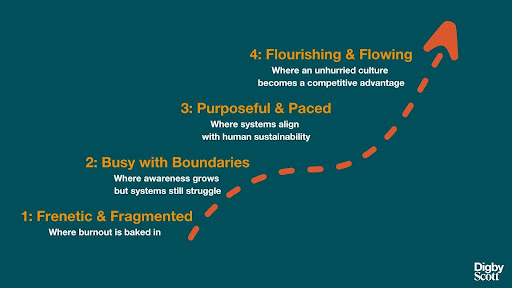Play The Long Game

A senior executive I know recently started a new job. During his first week, I sent him a message asking how it was going. His reply “Going OK. A bit shattered to be fair!” I replied, “Play the long game.” To which he replied “It’s the only one I know.”
His reply inspired me. For the years that I’ve known him, I’ve observed him lead and navigate gnarly, complex situations with outcomes that affect thousands, and sometimes millions, of people. He’s highly regarded for the excellent work he does. And I believe, in part, it’s because he plays the long game.
We’re at an interesting juncture in our history. We’re facing the collision of what appears to be an irresistible force heading directly towards an immovable object:
The irresistible force: our collective focus on the short-term. From addictive social media and news cycles to short ‘what, is it that time again?’ three-year election cycles. We ‘cycle’ in low gear, putting in heaps of effort with not a lot of discernable progress.
The immovable object: the increasing complexity of the challenges we face asks us to take a long view if we’re to address them successfully. Short-term fixes typically result in more problems popping up all over the place.
For example, the desire to live in the manner to which we’ve become accustomed vs the pressing need to address climate change. Or, our love of a few drinks every evening vs. the realisation that if we want to live a long, healthy life, we’ll need to invest more into our fitness and health rather than partying.
What happens when the irresistible force meets the immovable object? I shudder to think.
We can’t beat ourselves up too much. As psychologist Dan Gilbert explains, the human brain evolved to serve us well in the short-term. Back in the day, we lived short lives and our primary concern was to survive, eat and mate. We’re simply not hard wired to be very good at taking the long view!
Yet, we need to learn to do so.
Here’s a way to develop your ability to play the long game:

Let’s break that down:
Purpose
How clear are you about why you’re doing what you’re doing? The greater your clarity and commitment to your longer-term ‘why’, the easier it will be for you to stay focused on that and ignore distractions. One Change Makers graduate decided his purpose was simply to ‘make sustainability easy’. His career is now dedicated to realising that gnarly challenge, and he’s having a potent impact in the organisations he chooses to work with.
Foresight
Foresight is less about the ability to predict what’s going to happen. It’s more about the ability to create multiple scenarios to imagine what could be possible. As I’ve written about before, we need to dial up our focus on possibilities and dial down our focus on problems. The more vividly we can create possible scenarios, the more creative action we have at our disposal.
Wisdom
Two weeks ago, I wrote about cultivating wisdom. You can check out that post here. When we exercise wisdom, we’re making decisions that serve the long game. Do you eat the pie, or go for a bike ride? Your decision depends on your long game.
Ego
Ego is the great eroder of the long game. In our context, I’m defining ego as that part of us that’s driven by an over-inflated sense of neediness. The need to please, the need to control, the need to be right, the need to be the hero.
For most of the first four decades of my life, I was driven by a need to please and to get approval. The fear of being disapproved of drove my choices for what I did or didn’t do in the face of authority and power, and it limited me.
We all have ego needs. The question is: do you have them, or do they have you? If your ego needs overly dominate your decision making, then they have you. If you can acknowledge them and put them to one side, you can begin to act from a place of higher purpose, foresight and wisdom. You still have your needs, but they don’t control what happens next.
The higher the ego need, the less we’re able to play the long game, because our energy and efforts are directed towards meeting those needs first. The lower the ego need, the more we’re able to transcend the impulse, and the more we’re able to focus on purpose, foresight and wisdom.
When we choose to play the longer game, we can breathe out. Not everything has to be done today, or done perfectly, or even done at all. We can be less hurried, and more strategic about where we put our time and energy.
Leadership is less about the fires you put out. It’s more about creating the future you want. When you play the long game, you give yourself a better chance of truly leading.
Play the long game.
For more like this, check out
Like this post?
When you’re ready, here are three ways I can help you further:
More thoughts
Dig Deeper Newsletter
Sign up with your email to receive weekly leadership insights, tips, and inspiration from Digby.
.png)
.png)
